Song Itinerary Racism and Slavery in the USA
Vietnam Blues
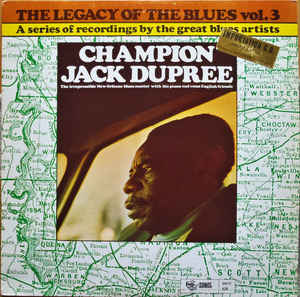
Well, I feel so sorry
(Continues)
(Continues)
Contributed by Dq82 2020/5/23 - 15:35
Song Itineraries:
Racism and Slavery in the USA, War in Viet Nam as seen from the U.S.
Jericho
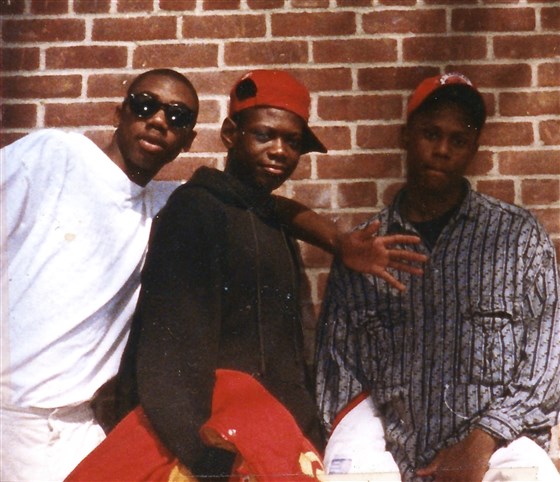
(2014)
Album: Life In Black & White
Featuring Hezekiah & Immortal Technique
Jericho Phillip Pannell was killed by Officer Gary Spath when I was 10 years old in Teaneck, New Jersey. Phillip’s cousin and the daughter of the cop’s partner were both in my class. Phillips cousin and I were bussed to “The White Side” of town. Blockbusting real estate in this community in the 1960s led to a very segregated town; the busing of students was done to “desegregate” a community with growing racial tensions.
It all boiled over when sixteen year old Phillip was murdered. I remember seeing Phillip a few times in passing at the park where we would play ball. After his death, I remember that the white teachers and staff took special interest in making sure the cop’s daughter was ok and even took her to the guidance counselor. Nothing for Phillips cousin. Phillip was Black and Spath is White. Spath... (Continues)
Album: Life In Black & White
Featuring Hezekiah & Immortal Technique
Jericho Phillip Pannell was killed by Officer Gary Spath when I was 10 years old in Teaneck, New Jersey. Phillip’s cousin and the daughter of the cop’s partner were both in my class. Phillips cousin and I were bussed to “The White Side” of town. Blockbusting real estate in this community in the 1960s led to a very segregated town; the busing of students was done to “desegregate” a community with growing racial tensions.
It all boiled over when sixteen year old Phillip was murdered. I remember seeing Phillip a few times in passing at the park where we would play ball. After his death, I remember that the white teachers and staff took special interest in making sure the cop’s daughter was ok and even took her to the guidance counselor. Nothing for Phillips cousin. Phillip was Black and Spath is White. Spath... (Continues)
[Chorus: Hezekiah]
(Continues)
(Continues)
2020/5/10 - 13:51
Song Itineraries:
Racism and Slavery in the USA
Highwomen

Non saprei come tradurre Highwomen, il riferimento è ovviamente alla canzone originale Highwayman (originariamente "bandito di strada") trasposto al femminile. Però non è Highwaywomen ma Highwomen quindi non si tratta di banditesse di strada, ma potrebbe essere semplicemente "grandi donne".
HIGHWOMEN
(Continues)
(Continues)
2020/5/3 - 13:31
Ain't Got No / I Got Life

mancano parti del testo tipo non ho fratelli non ho sorelle
2020/4/27 - 13:15
Long Walk to D.C.
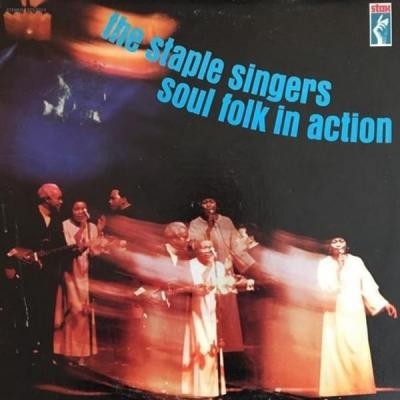
[1968]
Scritta da Homer Banks e Marvell Thomas
Singolo poi incluso nell'album "Soul Folk in Action", sempre del 1968
Scritta da Homer Banks e Marvell Thomas
Singolo poi incluso nell'album "Soul Folk in Action", sempre del 1968
It's a long walk to D.C. but I've got my walking shoes on
(Continues)
(Continues)
Contributed by Bernart Bartleby 2020/4/11 - 18:35
Song Itineraries:
Racism and Slavery in the USA
Birmingham
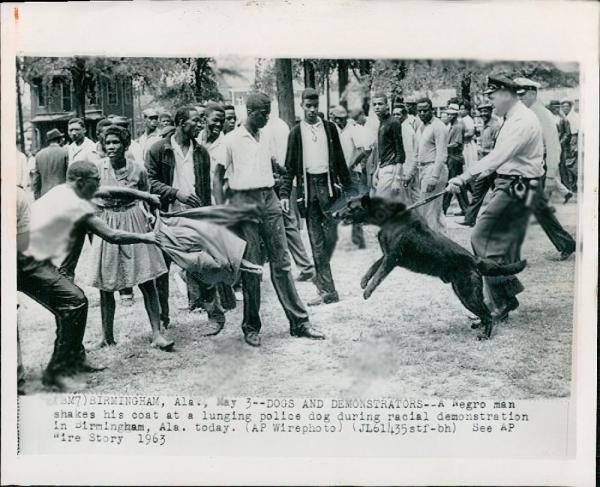
[1974]
Nell'album "Good Old Boys"
"Good Old Boys" è una sorta di concept album in cui Randy Newman utilizza un prototipo di lavoratore bianco "redneck" del profondo sud degli USA per raccontare la cultura e il sentimento che si vivevano da quelle parti negli anni 60 e 70 (così come in gran parte anche oggi)... Il testo è apparentemente innocente, la descrizione di una tipica famigliola bianca di Birmingham, Alabama, lui, operaio in acciaieria, lei, che cura una casetta di tre stanze, con un giardino che è il regno del loro grosso cane nero chiamato Dan... ed ecco, proprio alla fine, irrompere la violenza: "Dan è il più cattivo cane dell'Alabama... Prendili, Dan!"
Nell'album "Good Old Boys"
"Good Old Boys" è una sorta di concept album in cui Randy Newman utilizza un prototipo di lavoratore bianco "redneck" del profondo sud degli USA per raccontare la cultura e il sentimento che si vivevano da quelle parti negli anni 60 e 70 (così come in gran parte anche oggi)... Il testo è apparentemente innocente, la descrizione di una tipica famigliola bianca di Birmingham, Alabama, lui, operaio in acciaieria, lei, che cura una casetta di tre stanze, con un giardino che è il regno del loro grosso cane nero chiamato Dan... ed ecco, proprio alla fine, irrompere la violenza: "Dan è il più cattivo cane dell'Alabama... Prendili, Dan!"
Got a wife
(Continues)
(Continues)
Contributed by Bernart Bartleby 2020/4/11 - 14:25
Song Itineraries:
Racism and Slavery in the USA
Rednecks
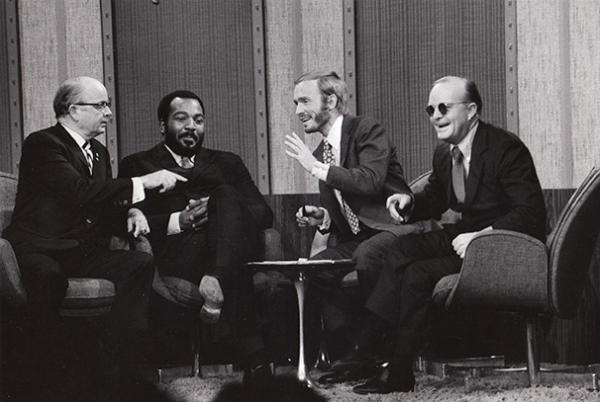
[1974]
La canzone che apre l'album "Good Old Boys"
Il primo verso credo possa fare riferimento ad una famosa puntata televisiva del Dick Cavett Show, ospiti l'ex governatore della Georgia, il populista segregazionista Lester Maddox, e un'ex stella del football, il nero Jim Brown. Ad un certo punto, quest'ultimo chiese provocatoriamente all'ex governatore – in seguito vice-governatore durante il mandato di Jimmy Carter – se la sua politica così "favorevole" ai negri avesse mai fatto incazzare qualche redneck, qualche bigotto bianco... Il conduttore Dick Cavett ribadì la domanda di Brown e Lester Maddox andò su tutte le furie, pretendendo da Cavett le scuse per aver offeso il suo elettorato, ma il conduttore rimase impassibile e Maddox abbandonò lo studio televisivo nel pieno della diretta...
La canzone che apre l'album "Good Old Boys"
Il primo verso credo possa fare riferimento ad una famosa puntata televisiva del Dick Cavett Show, ospiti l'ex governatore della Georgia, il populista segregazionista Lester Maddox, e un'ex stella del football, il nero Jim Brown. Ad un certo punto, quest'ultimo chiese provocatoriamente all'ex governatore – in seguito vice-governatore durante il mandato di Jimmy Carter – se la sua politica così "favorevole" ai negri avesse mai fatto incazzare qualche redneck, qualche bigotto bianco... Il conduttore Dick Cavett ribadì la domanda di Brown e Lester Maddox andò su tutte le furie, pretendendo da Cavett le scuse per aver offeso il suo elettorato, ma il conduttore rimase impassibile e Maddox abbandonò lo studio televisivo nel pieno della diretta...
Last night, I saw Lester Maddox on a TV show
(Continues)
(Continues)
Contributed by Bernart Bartleby 2020/4/11 - 13:58
Song Itineraries:
Racism and Slavery in the USA
Bill Withers: Harlem
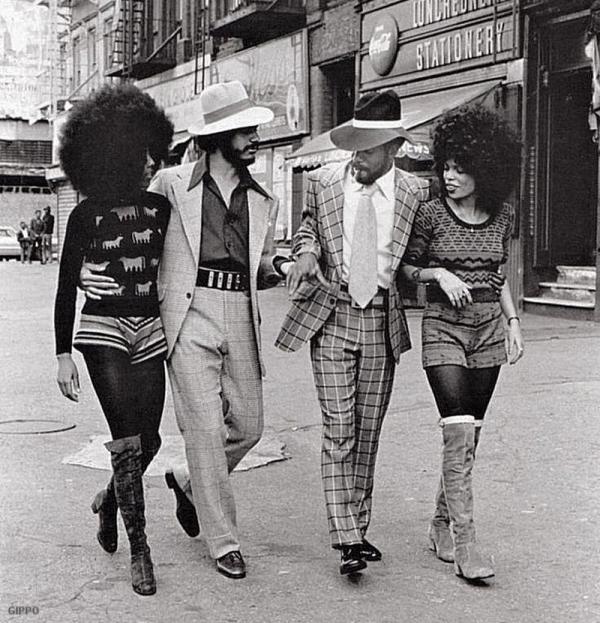
Summer night in Harlem
(Continues)
(Continues)
Contributed by Bernart Bartleby 2020/4/4 - 17:19
Song Itineraries:
Racism and Slavery in the USA
Stolen Dreams (a Ballad for Michael Stewart)
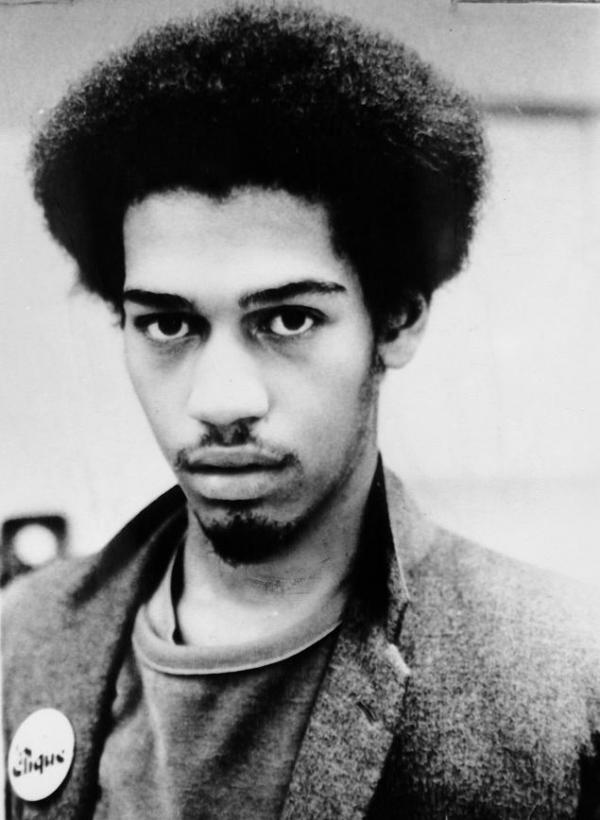
[1985]
Scritta da Jaribu e Ngoma Hill
Nell'album "How Many More?", Folkways Records
Canzone dedicata a Michael Jerome Stewart (1958-1983), un giovane afroamericano che fu arrestato il 15 settembre 1983 per aver prodotto alcuni graffiti a spray all'interno della stazione di First Avenue nella metro di New York City. In custodia della polizia, il giovane venticinquenne fu pestato a sangue e morì 13 giorni più tardi senza mai riprendere conoscenza...
I poliziotti assassini – in tutto 6 – furono tutti dichiarati innocenti da una giuria composta da soli bianchi. Nel 1990 la famiglia di Michael Jerome Stewart ha ottenuto per via stragiudiziale un risarcimento di 1.7 milioni di dollari dalla città di New York.
Scritta da Jaribu e Ngoma Hill
Nell'album "How Many More?", Folkways Records
Canzone dedicata a Michael Jerome Stewart (1958-1983), un giovane afroamericano che fu arrestato il 15 settembre 1983 per aver prodotto alcuni graffiti a spray all'interno della stazione di First Avenue nella metro di New York City. In custodia della polizia, il giovane venticinquenne fu pestato a sangue e morì 13 giorni più tardi senza mai riprendere conoscenza...
I poliziotti assassini – in tutto 6 – furono tutti dichiarati innocenti da una giuria composta da soli bianchi. Nel 1990 la famiglia di Michael Jerome Stewart ha ottenuto per via stragiudiziale un risarcimento di 1.7 milioni di dollari dalla città di New York.
Young Black Man-Child
(Continues)
(Continues)
Contributed by Bernart Bartleby 2020/4/4 - 15:57
How Many More?
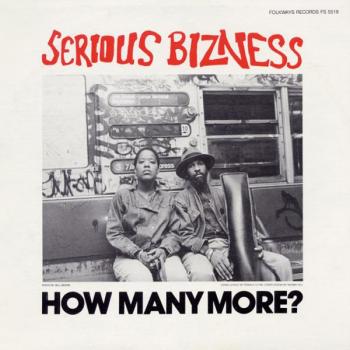
[1985]
Scritta da Jaribu e Ngoma Hill
La canzone che intitola e chiude l'album prodotto dalla Folkways Records
Scritta da Jaribu e Ngoma Hill
La canzone che intitola e chiude l'album prodotto dalla Folkways Records
Same game, different name
(Continues)
(Continues)
Contributed by Bernart Bartleby 2020/4/4 - 15:34
Song Itineraries:
Racism and Slavery in the USA
Old Glory's Story
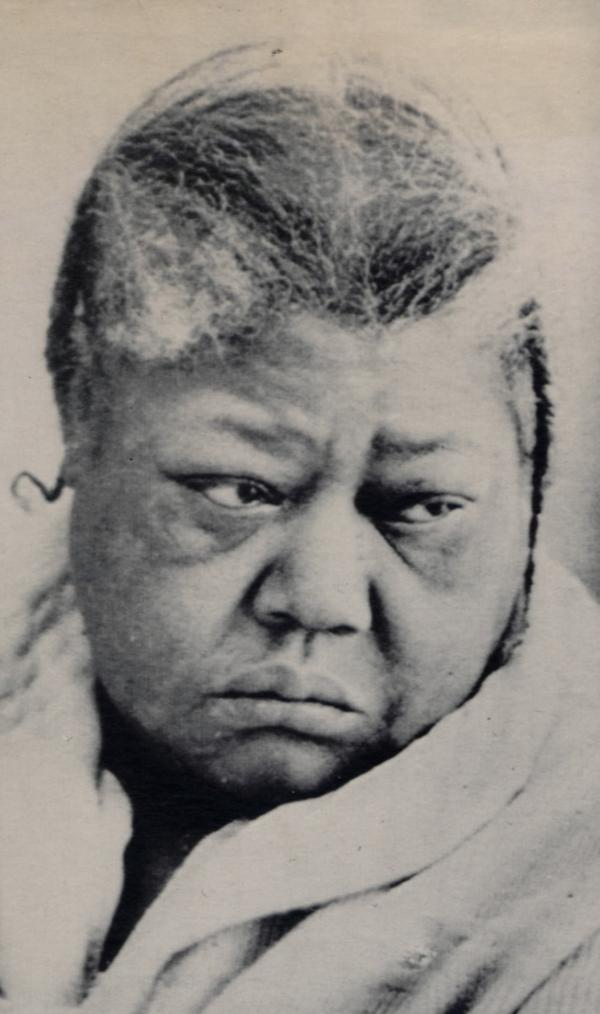
[1985]
Scritta da Jaribu e Ngoma Hill
Nell'album "How Many More?", Folkways Records
Nella terza strofa si fa riferimento alla vicenda di Eleanor Bumpurs, un'afroamericana di 66 anni, povera e molto malata, gravemente minata anche nella salute mentale, che fu uccisa dalla polizia del Bronx il 29 ottobre 1984 durante il tentativo di sfrattarla dal suo misero appartamento. Il poliziotto che le sparò due volte si chiamava Stephen Sullivan e fu poi dichiarato innocente. La città di New York pagò 200.000 dollari di risarcimento alla famiglia della Bumpurs...
Scritta da Jaribu e Ngoma Hill
Nell'album "How Many More?", Folkways Records
Nella terza strofa si fa riferimento alla vicenda di Eleanor Bumpurs, un'afroamericana di 66 anni, povera e molto malata, gravemente minata anche nella salute mentale, che fu uccisa dalla polizia del Bronx il 29 ottobre 1984 durante il tentativo di sfrattarla dal suo misero appartamento. Il poliziotto che le sparò due volte si chiamava Stephen Sullivan e fu poi dichiarato innocente. La città di New York pagò 200.000 dollari di risarcimento alla famiglia della Bumpurs...
Sit down and let me tell my story
(Continues)
(Continues)
Contributed by Bernart Bartleby 2020/4/4 - 15:11
Song Itineraries:
Racism and Slavery in the USA
Merry-Go-Round
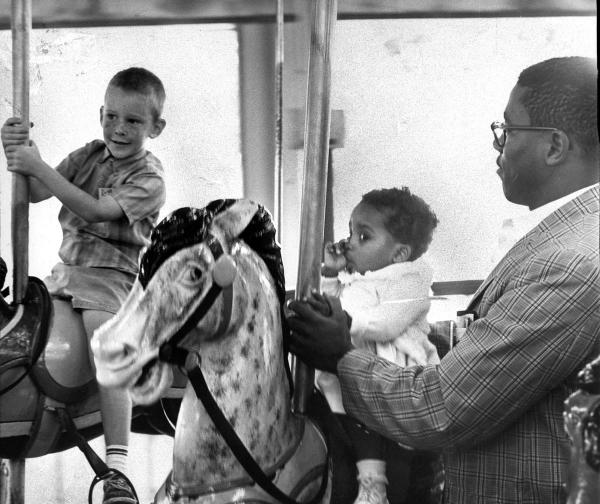
Scritta da Joe De Filippo, musicista di Baltimora, leader della R.J. Phillips Band
Testo trascritto dai titoli su YouTube
Non credo che il brano risalga agli anni 60 ma che sia abbastanza recente, forse composto nel 2014.
Tuttavia il testo si riferisce ad uno dei tantissimi grandi e piccoli episodi che tra i 50 e i 60 portarono al trionfo del movimento per i diritti civili, quelli degli afroamericani in particolare.
Il 28 agosto del 1963 fu il giorno della Grande Marcia su Washington per il lavoro e la libertà.
Sappiamo bene cosa accadde: fu il giorno del I Have A Dream pronunciato da Martin Luther King Jr....
A 50 km da lì, a Baltimora, quello stesso giorno, successe un evento analogo, molto più piccolo, ma altrettanto significativo: nel Gwynn Oak Amusement Park c'era una splendida giostra a cavalli, una merry-go-round, e Sharon, una bambina nera di soli 11 mesi, fu la prima afroamericana a salire su quella giostra, accompagnata dal padre Charles Langley Jr....
Testo trascritto dai titoli su YouTube
Non credo che il brano risalga agli anni 60 ma che sia abbastanza recente, forse composto nel 2014.
Tuttavia il testo si riferisce ad uno dei tantissimi grandi e piccoli episodi che tra i 50 e i 60 portarono al trionfo del movimento per i diritti civili, quelli degli afroamericani in particolare.
Il 28 agosto del 1963 fu il giorno della Grande Marcia su Washington per il lavoro e la libertà.
Sappiamo bene cosa accadde: fu il giorno del I Have A Dream pronunciato da Martin Luther King Jr....
A 50 km da lì, a Baltimora, quello stesso giorno, successe un evento analogo, molto più piccolo, ma altrettanto significativo: nel Gwynn Oak Amusement Park c'era una splendida giostra a cavalli, una merry-go-round, e Sharon, una bambina nera di soli 11 mesi, fu la prima afroamericana a salire su quella giostra, accompagnata dal padre Charles Langley Jr....
Momma, can I go on the merry-go-round?
(Continues)
(Continues)
Contributed by Bernart Bartleby 2020/4/2 - 21:06
Song Itineraries:
Racism and Slavery in the USA
Freedom Ride
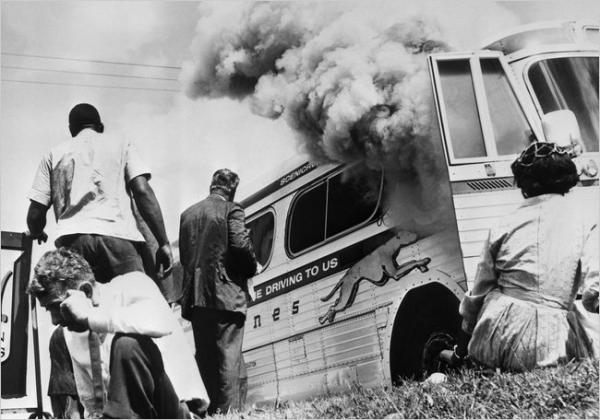
Scritta da Joe De Filippo, musicista di Baltimora, leader della R.J. Phillips Band
Testo trascritto dai titoli su YouTube
Non credo che il brano risalga agli anni 60 ma che sia abbastanza recente, forse composto appositamente per la colonna sonora dell'ultimo film di Spike Lee, "BLACKkKLANSMAN"
Ancora una canzone sui Freedom Riders, questo il nome del convoglio del CORE (Congress of Racial Equality) che nel 1961 attraversò Virginia, Carolinas, Georgia, Alabama, Mississippi e Louisiana per denunciare che la segregazione razziale, bandita dalla Corte Suprema degli USA, continuava a persistere. Nonostante i continui, violentissimi attacchi armati da parte di segregazionisti e membri del KKK, i Freedom Riders portarono a termine con successo il loro viaggio a New Orleans.
Testo trascritto dai titoli su YouTube
Non credo che il brano risalga agli anni 60 ma che sia abbastanza recente, forse composto appositamente per la colonna sonora dell'ultimo film di Spike Lee, "BLACKkKLANSMAN"
Ancora una canzone sui Freedom Riders, questo il nome del convoglio del CORE (Congress of Racial Equality) che nel 1961 attraversò Virginia, Carolinas, Georgia, Alabama, Mississippi e Louisiana per denunciare che la segregazione razziale, bandita dalla Corte Suprema degli USA, continuava a persistere. Nonostante i continui, violentissimi attacchi armati da parte di segregazionisti e membri del KKK, i Freedom Riders portarono a termine con successo il loro viaggio a New Orleans.
Boarded the Greyhound Alabama bound
(Continues)
(Continues)
Contributed by Bernart Bartleby 2020/4/2 - 13:26
Song Itineraries:
Racism and Slavery in the USA
The End of Silence
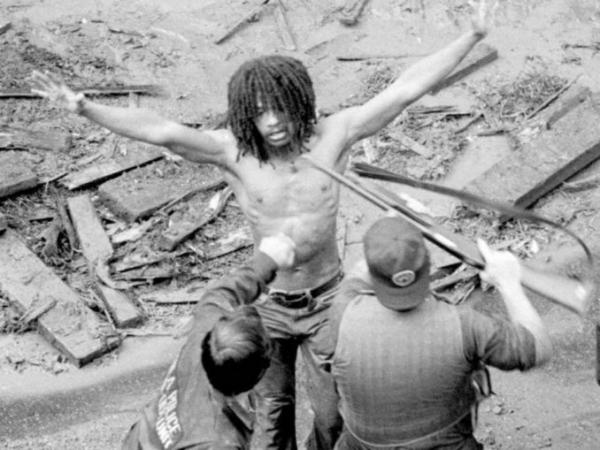
LIBERATO DOPO 42 ANNI UN ESPONENTE DEL MOVE
Gianni Sartori
Verso la metà degli anni novanta del secolo scorso (mi pare nel 1997) avevo incontrato alcuni esponenti del MOVE a Bassano nella sede del Centro sociale (poi demolito) “Stella Rossa”. Ramona Africa mi spiegò che tutti i militanti del MOVE rinunciavano al nome precedente in quanto evocava la condizione di schiavi dei loro antenati (come fece anche Malcom X) e aggiungevano al nome proprio, come rivendicazione di appartenenza comunitaria, familiare, il cognome “Africa”.
Da ex operaio rimasto intossicato da colle e vernici sul lavoro, avevo particolarmente apprezzato che prima della conferenza i militanti afro-americani avessero richiesto di non fumare durante la stessa. Anche “per rispetto dell’aria”, non solo delle vie respiratorie dei presenti. All’epoca molte riunioni di “soggetti antagonisti” si svolgevano ancora avvolte in asfissianti... (Continues)
Gianni Sartori 2020/1/19 - 09:21
Freedom (Freestyle)

(2016)
Il rapper Joe Budden ha campionato e reinterpretato Freedom di Beyoncé e Kendrick Lamar. Se la canzone originale era già un inno alla libertà e contro l'opressione della comunità nera, Budden la rende un pezzo ancora più politico contro le violenze della polizia e i candidati politici razzisti.
Il rapper Joe Budden ha campionato e reinterpretato Freedom di Beyoncé e Kendrick Lamar. Se la canzone originale era già un inno alla libertà e contro l'opressione della comunità nera, Budden la rende un pezzo ancora più politico contro le violenze della polizia e i candidati politici razzisti.
[Intro: Diamond Reynolds]
(Continues)
(Continues)
2019/12/29 - 21:59
Song Itineraries:
Racism and Slavery in the USA
Chains
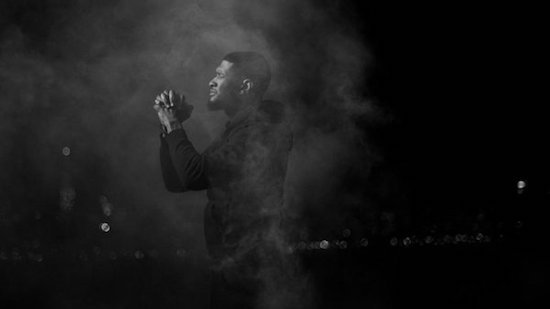
(2015)
Featuring Nas & Bibi Bourelly
La canzone è stata presentata su Tidal il 16 ottobre 2015. La pagina chiede di attivare la webcam che riconosce il tuo volto. Quando clicchi play la canzone comincia e chiede di guardare negli occhi le facce di recenti vittime di violenze della polizia. Se smetti di guardare la canzone si interrompe.
WHILE RACIAL INJUSTICE KEEPS KILLING,
SOCIETY KEEPS LOOKING AWAY
Featuring Nas & Bibi Bourelly
La canzone è stata presentata su Tidal il 16 ottobre 2015. La pagina chiede di attivare la webcam che riconosce il tuo volto. Quando clicchi play la canzone comincia e chiede di guardare negli occhi le facce di recenti vittime di violenze della polizia. Se smetti di guardare la canzone si interrompe.
WHILE RACIAL INJUSTICE KEEPS KILLING,
SOCIETY KEEPS LOOKING AWAY
With liberty and justice for all
(Continues)
(Continues)
2019/12/29 - 21:49
Song Itineraries:
Racism and Slavery in the USA
Don’t Shoot
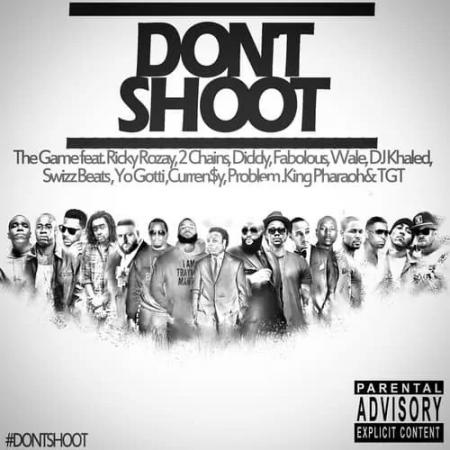
(2014)
Featuring DJ Khaled, 2 Chainz, Fabolous, TGT, Swizz Beatz, Yo Gotti, King Pharaoh, Curren$y, Problem, Rick Ross, Wale & Diddy
Game recruits an all star cast to speak out against the recent violence and injustice in Ferguson, Mo. The song covers topics such as Injustice, Emmet Till, the relationship between people of color and the police and the increasing militarization of the officers.
Featuring DJ Khaled, 2 Chainz, Fabolous, TGT, Swizz Beatz, Yo Gotti, King Pharaoh, Curren$y, Problem, Rick Ross, Wale & Diddy
Game recruits an all star cast to speak out against the recent violence and injustice in Ferguson, Mo. The song covers topics such as Injustice, Emmet Till, the relationship between people of color and the police and the increasing militarization of the officers.
[Intro: DJ Khaled]
(Continues)
(Continues)
2019/12/29 - 21:36
Song Itineraries:
Racism and Slavery in the USA
A Lot of Love

(2016)
“A Lot of Love” is the follow up song to “My Friend” and serves as a tribute to those killed by the hands of police of brutality—the most recent victims being Alton Sterling and Philando Castile.
This song is more optimistic and uplifting due to its positive serenity. Chris’s songs usually are in the realm of making love but in this track his claim is to show love to all so we can rise up from our losses.
“A Lot of Love” is the follow up song to “My Friend” and serves as a tribute to those killed by the hands of police of brutality—the most recent victims being Alton Sterling and Philando Castile.
This song is more optimistic and uplifting due to its positive serenity. Chris’s songs usually are in the realm of making love but in this track his claim is to show love to all so we can rise up from our losses.
A lot of love
(Continues)
(Continues)
2019/12/29 - 13:05
Song Itineraries:
Racism and Slavery in the USA
No Justice No Peace
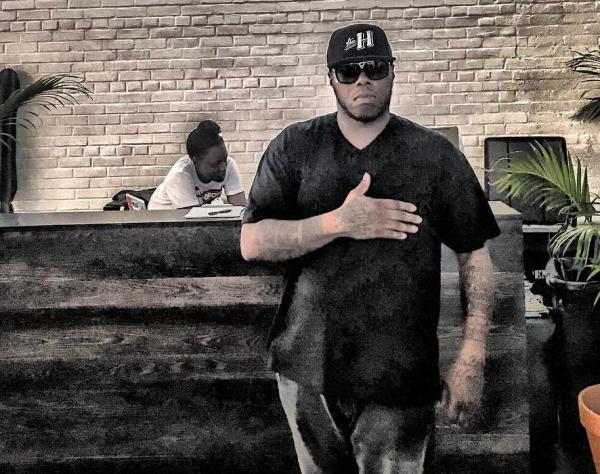
(2016)
"Being black in America, you have to know how to take punches from cops, the government and white society. That's what it means to be black. You have to be able to take punches and be able to keep moving."
Vibe
Vibe
No justice, no peace
(Continues)
(Continues)
2019/12/29 - 12:59
Song Itineraries:
Racism and Slavery in the USA
Sad News
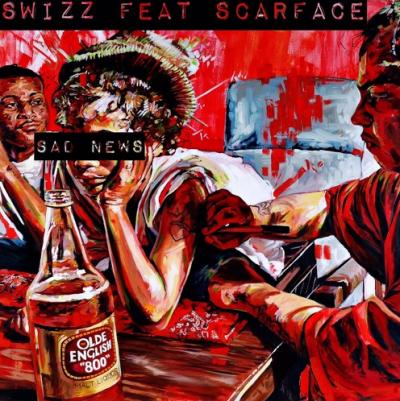
2016
Featuring Scarface
Following the shootings of Alton Sterling and Philando Castile by police officers, Swizz Beatz and Scarface linked up to record this powerful protest song.
Although it is unclear who Swizz Beatz is referencing in the second verse, the story shares many similarities with the shooting of 17-year-old Trayvon Martin, despite Martin’s death occurring in Sanford, Florida.
On February 26, 2012, Trayvon Martin was walking back to his townhouse from a nearby convenience store. Trayvon, like the boy described in this verse, was wearing a hoodie. George Zimmerman, the neighborhood watch coordinator, observed Martin and, paranoid as a result of a recent increase in burglaries in the neighborhood, reported Martin to the police. The police ordered Zimmerman to remain in his vehicle, but he instead followed Martin, eventually fatally shooting him just 70 yards from the teen’s... (Continues)
Featuring Scarface
Following the shootings of Alton Sterling and Philando Castile by police officers, Swizz Beatz and Scarface linked up to record this powerful protest song.
Although it is unclear who Swizz Beatz is referencing in the second verse, the story shares many similarities with the shooting of 17-year-old Trayvon Martin, despite Martin’s death occurring in Sanford, Florida.
On February 26, 2012, Trayvon Martin was walking back to his townhouse from a nearby convenience store. Trayvon, like the boy described in this verse, was wearing a hoodie. George Zimmerman, the neighborhood watch coordinator, observed Martin and, paranoid as a result of a recent increase in burglaries in the neighborhood, reported Martin to the police. The police ordered Zimmerman to remain in his vehicle, but he instead followed Martin, eventually fatally shooting him just 70 yards from the teen’s... (Continues)
*Fire*
(Continues)
(Continues)
2019/12/29 - 12:25
Song Itineraries:
Racism and Slavery in the USA
White Privilege II

Alum: This Unruly Mess I’ve Made (2016)
Featuring Jamila Woods
Testo da genius
"It’s easier, as a white person, to be silent about racial injustice. It’s easier. On paper. But it’s not easier on the whole, because injustice affects all of us, whether we know it or not, whether we acknowledge it or not. At a certain point, this song might affect sales, this might affect touring, but it doesn’t matter if I’m not speaking up – if I’m not pushing myself to speak truth."
Macklemore
Featuring Jamila Woods
Testo da genius
"It’s easier, as a white person, to be silent about racial injustice. It’s easier. On paper. But it’s not easier on the whole, because injustice affects all of us, whether we know it or not, whether we acknowledge it or not. At a certain point, this song might affect sales, this might affect touring, but it doesn’t matter if I’m not speaking up – if I’m not pushing myself to speak truth."
Macklemore
Pulled into the parking lot, parked it
(Continues)
(Continues)
2019/12/29 - 00:56
Song Itineraries:
Racism and Slavery in the USA
Better Days

(2016)
Featuring Ariana Grande
Di una banalità a tratti sconcertante, ma pur sempre una canzone contro la guerra, la violenza e il razzismo.
Featuring Ariana Grande
Di una banalità a tratti sconcertante, ma pur sempre una canzone contro la guerra, la violenza e il razzismo.
Victoria and Ariana recorded and released the songs due to all the violence that has occurred in the world especially this month due to what happened in Dallas, Texas and for the lives of those black lives that were lost due to the police.
This song is referring that violence is really corrupting our world and that we all, as humans, make mistakes and there is no need for violence and to inform people that even though the world is always going through a crisis we have better days to look for.
This song is referring that violence is really corrupting our world and that we all, as humans, make mistakes and there is no need for violence and to inform people that even though the world is always going through a crisis we have better days to look for.
Baby, there's a war right outside our window
(Continues)
(Continues)
2019/12/29 - 00:32
Song Itineraries:
Racism and Slavery in the USA
My Identity
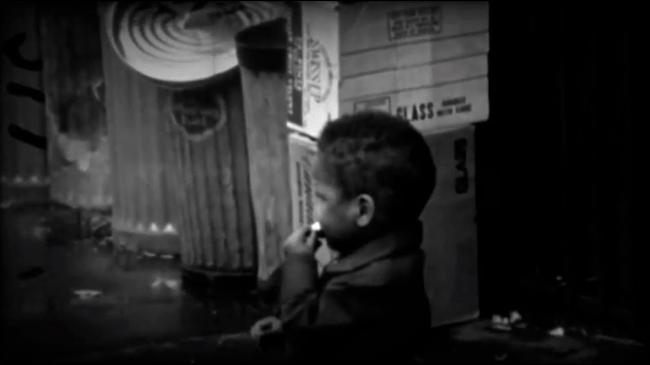
2016
Album Inappropriate Behaviour
Featuring Larynx
Album Inappropriate Behaviour
Featuring Larynx
It's my Identity
(Continues)
(Continues)
2019/12/28 - 23:19
Song Itineraries:
Racism and Slavery in the USA
Tulsa 1921
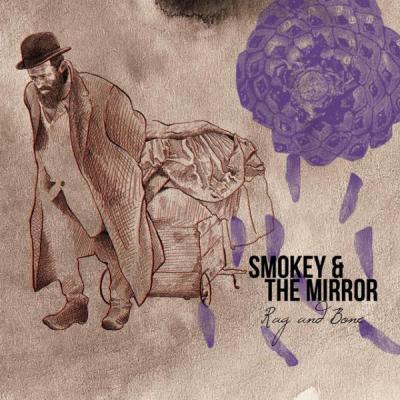
2011
Rag and bone
Words & Music by Bryan Hembree
98 years ago today Greenwood was burning. Known then as the "Black Wall Street" Greenwood, on the edge of Downtown Tulsa was one of the most affluent African American business districts and communities in America. In the span of 36 hours a mob burned it to the ground. By most accounts, hundreds of Greenwood residents lost their lives. A horrific tragedy. As a kid growing up in Tulsa in the 1980's, the story was rarely talked about. It shocked me and saddened me and so many other Tulsans, but it was a mere undercurrent. It had happened so long ago, and been talked about so little that some people treated it more as a myth than the reality and tragedy it was. When I was writing this song 10 years ago, I tried to imagine what Woody Guthrie or Bob Dylan would have said had then written about the Greenwood massacre. I remember feeling that... (Continues)
Rag and bone
Words & Music by Bryan Hembree
98 years ago today Greenwood was burning. Known then as the "Black Wall Street" Greenwood, on the edge of Downtown Tulsa was one of the most affluent African American business districts and communities in America. In the span of 36 hours a mob burned it to the ground. By most accounts, hundreds of Greenwood residents lost their lives. A horrific tragedy. As a kid growing up in Tulsa in the 1980's, the story was rarely talked about. It shocked me and saddened me and so many other Tulsans, but it was a mere undercurrent. It had happened so long ago, and been talked about so little that some people treated it more as a myth than the reality and tragedy it was. When I was writing this song 10 years ago, I tried to imagine what Woody Guthrie or Bob Dylan would have said had then written about the Greenwood massacre. I remember feeling that... (Continues)
A shot rings out in the middle of the night
(Continues)
(Continues)
Contributed by Dq82 + Bryan Hembree 2019/12/26 - 12:14
Song Itineraries:
Racism and Slavery in the USA
A Change Is Gonna Come
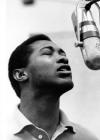
Ho fatto un CD con una ventina di versioni di questo brano.
In mezzo a tutte le altre la versione di Bob Dylan (dal vivo a New York il 28 marzo 2004: 70° della fondazione dell'Apollo Theater nel quartiere di Harlem) sembra un corpo estraneo, ma ...
dopo il primo ascolto, e via via sempre di più, ci si rende conto che no, Dylan azzecca perfettamente lo spirito della canzone. Non è un esercizio di bel canto, ma di espressività ed è incomparabile. Riesce veramente a far sentire la condizione di outcast dell'io narrante:
I go to the movie and I go downtown / somebody (keep) tellin' me "don't hang around" e da qui in poi è un crescendo
... winds up knockin' me / Back down on my knees / aaaaah
e il "lieto fine" non è calcato, Dylan fa suo il brano e a quel punto della propria vita (ha 63 anni) "a change is gonna come" più che una certezza torna ad essere una speranza.
Precedentemente... (Continues)
In mezzo a tutte le altre la versione di Bob Dylan (dal vivo a New York il 28 marzo 2004: 70° della fondazione dell'Apollo Theater nel quartiere di Harlem) sembra un corpo estraneo, ma ...
dopo il primo ascolto, e via via sempre di più, ci si rende conto che no, Dylan azzecca perfettamente lo spirito della canzone. Non è un esercizio di bel canto, ma di espressività ed è incomparabile. Riesce veramente a far sentire la condizione di outcast dell'io narrante:
I go to the movie and I go downtown / somebody (keep) tellin' me "don't hang around" e da qui in poi è un crescendo
... winds up knockin' me / Back down on my knees / aaaaah
e il "lieto fine" non è calcato, Dylan fa suo il brano e a quel punto della propria vita (ha 63 anni) "a change is gonna come" più che una certezza torna ad essere una speranza.
Precedentemente... (Continues)
Alexan wolf 2019/12/18 - 23:27
History Lesson
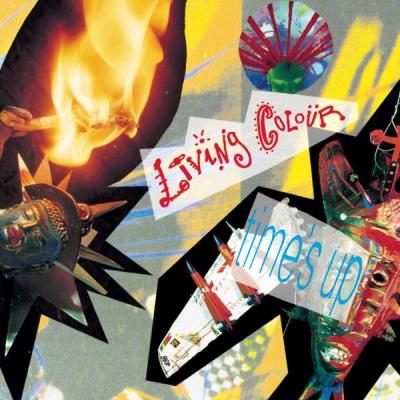
[1990]
Ideata da Vernon Reid
Nell'album "Time's Up"
La voce recitante dovrebbe essere quella dell'attore e doppiatore afroamericano James Earl Jones, per intenderci, colui che ha dato la voce a Darth Vader / Dart Fener di "Star Wars"...
Ideata da Vernon Reid
Nell'album "Time's Up"
La voce recitante dovrebbe essere quella dell'attore e doppiatore afroamericano James Earl Jones, per intenderci, colui che ha dato la voce a Darth Vader / Dart Fener di "Star Wars"...
In Africa music is not an art form as much as it is a means of communication
(Continues)
(Continues)
Contributed by Bernart Bartleby 2019/11/9 - 21:31
Song Itineraries:
Racism and Slavery in the USA
Open Letter (to a Landlord)
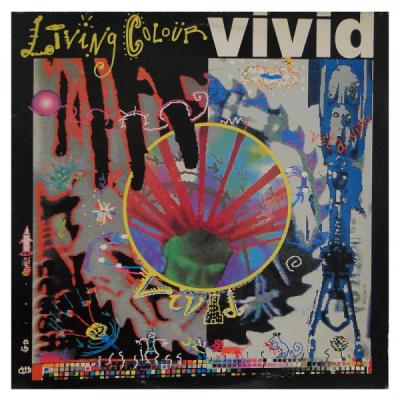
[1988]
Scritta da Vernon Reid con la poetessa di Brooklyn Tracie Morris
Nell'album "Vivid", micidiale esordio di questa storica band di New York
Un testo contro la gentrificazione – quella che da noi chiamano riqualificazione urbana - dell'East Side di New York City. Succede in sostanza che proprietari di condomini fatiscenti, arricchitisi per decenni con affitti esosi imposti a gente povera, ricevono offerte molto allettanti da società interessate ad acquistare per ristrutturare e vendere a prezzi molto più alti ad acquirenti facoltosi. Molto velocemente il tessuto urbano cambia e i poveri sono costretti a cambiare aria.
La canzone venne scritta da Reid partendo dai versi con cui la Morris rifletteva sul cambiamento repentino che in quegli anni stava subendo la 8th Street e la St. Mark's Place a Manhattan, subito dopo l'arrivo di catene commerciali come The Gap (abbigliamento, seconda al mondo solo a Zara)...
Scritta da Vernon Reid con la poetessa di Brooklyn Tracie Morris
Nell'album "Vivid", micidiale esordio di questa storica band di New York
Un testo contro la gentrificazione – quella che da noi chiamano riqualificazione urbana - dell'East Side di New York City. Succede in sostanza che proprietari di condomini fatiscenti, arricchitisi per decenni con affitti esosi imposti a gente povera, ricevono offerte molto allettanti da società interessate ad acquistare per ristrutturare e vendere a prezzi molto più alti ad acquirenti facoltosi. Molto velocemente il tessuto urbano cambia e i poveri sono costretti a cambiare aria.
La canzone venne scritta da Reid partendo dai versi con cui la Morris rifletteva sul cambiamento repentino che in quegli anni stava subendo la 8th Street e la St. Mark's Place a Manhattan, subito dopo l'arrivo di catene commerciali come The Gap (abbigliamento, seconda al mondo solo a Zara)...
Now you can tear a building down
(Continues)
(Continues)
Contributed by Bernart Bartleby 2019/11/8 - 21:28
Alabama
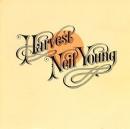
Come curiosità io inserirei anche la risposta che gli diedero i Lynyrd Skynyrd, "Sweet home Alabama" :-)
Vito Vita 2019/11/2 - 20:11
Slave to the Rhythm
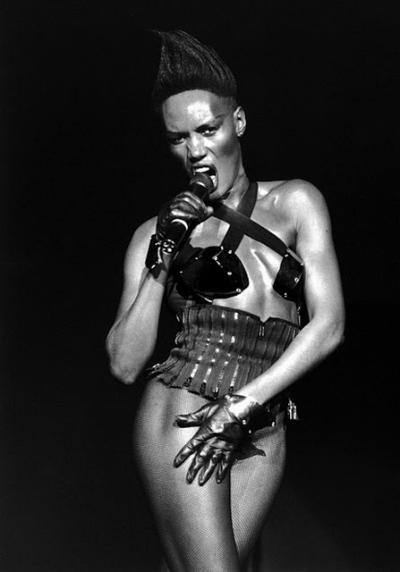
(1985)
Scritta da Bruce Woolley Simon Darlow Stephen Lipson Trevor Horn per Grace Jones
dall'album omonimo
La canzone, famosissima e un classico danzereccio, può essere interpretata come la storia degli afro-americani portati come schiavi dall'Africa negli Stati Uniti e costretti a lavorare in catene cantando per mantenere il ritmo, senza mai fermarsi. Ma la musica era anche uno dei pochissimi spazi di libertà, quando in Louisiana gli schiavi neri si ritrovavano la domenica sera per cantare e ballare e mantenere la loro cultura d'origine africana.
Allo stesso tempo si potrebbe riferire all'industria musicale che produce idoli in serie schiavi del ritmo delle loro canzoni, o più in generale al modello di lavoro capitalistico. Ma il monologo iniziale presente in alcune versioni che fa riferimento alle origini africane di Grace Jones fa pensare che la canzone parli proprio degli schiavi afroamericani.
Scritta da Bruce Woolley Simon Darlow Stephen Lipson Trevor Horn per Grace Jones
dall'album omonimo
La canzone, famosissima e un classico danzereccio, può essere interpretata come la storia degli afro-americani portati come schiavi dall'Africa negli Stati Uniti e costretti a lavorare in catene cantando per mantenere il ritmo, senza mai fermarsi. Ma la musica era anche uno dei pochissimi spazi di libertà, quando in Louisiana gli schiavi neri si ritrovavano la domenica sera per cantare e ballare e mantenere la loro cultura d'origine africana.
Allo stesso tempo si potrebbe riferire all'industria musicale che produce idoli in serie schiavi del ritmo delle loro canzoni, o più in generale al modello di lavoro capitalistico. Ma il monologo iniziale presente in alcune versioni che fa riferimento alle origini africane di Grace Jones fa pensare che la canzone parli proprio degli schiavi afroamericani.
Grace Jones: "I have a grandfather on my father’s side. He’s 95 years old. His great grandfather came from Nigeria, from the Igbo tribe. I don’t look like my mother and I don’t look like my father. I look exactly like my grandfather. I act like him."
(Continues)
(Continues)
2019/11/2 - 00:22
Song Itineraries:
Racism and Slavery in the USA
Is It Because I'm Black?
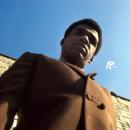
Versione dei Ramiccia con Begoña Bang-Matu dall'album Ramiccia meet Begoña
Dq82 2019/10/21 - 14:36
×
![]()

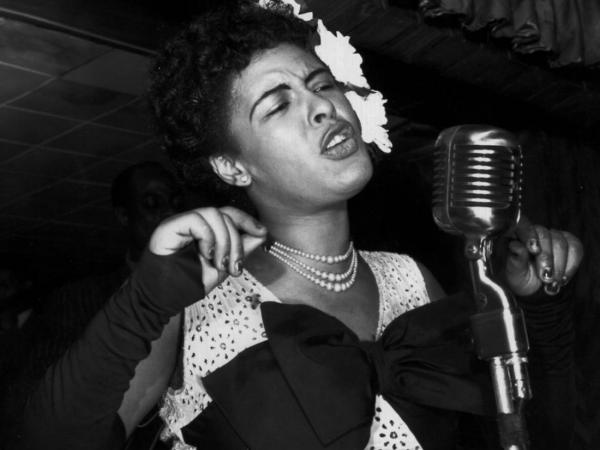

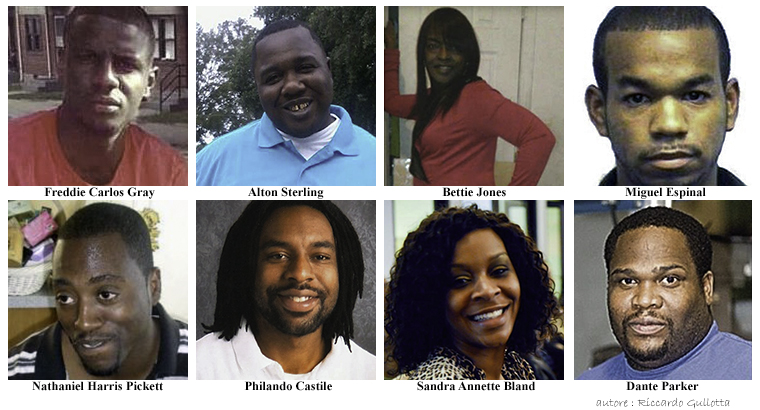
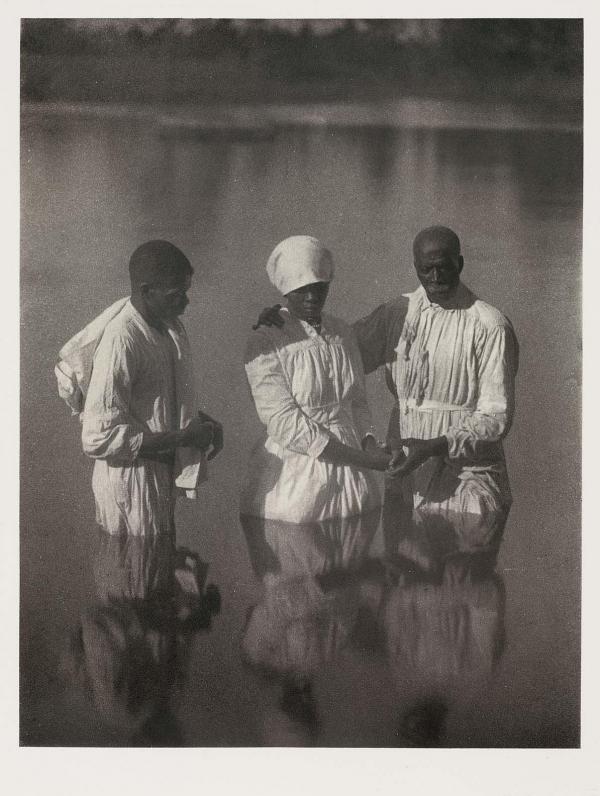
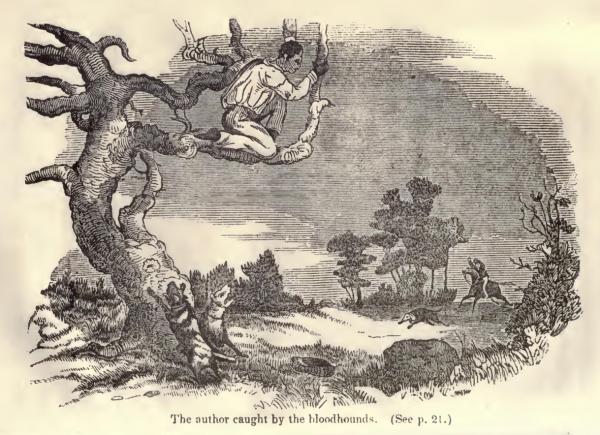

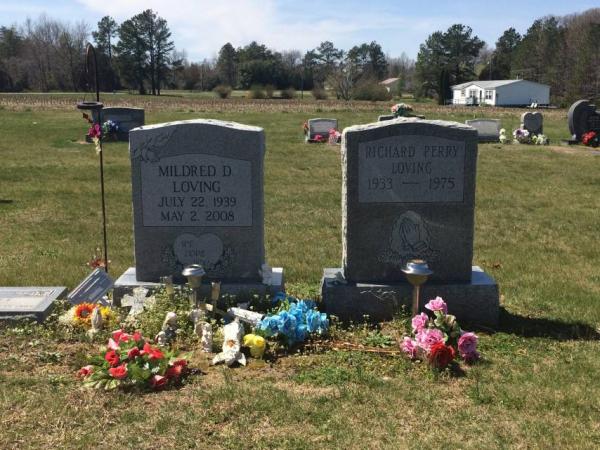

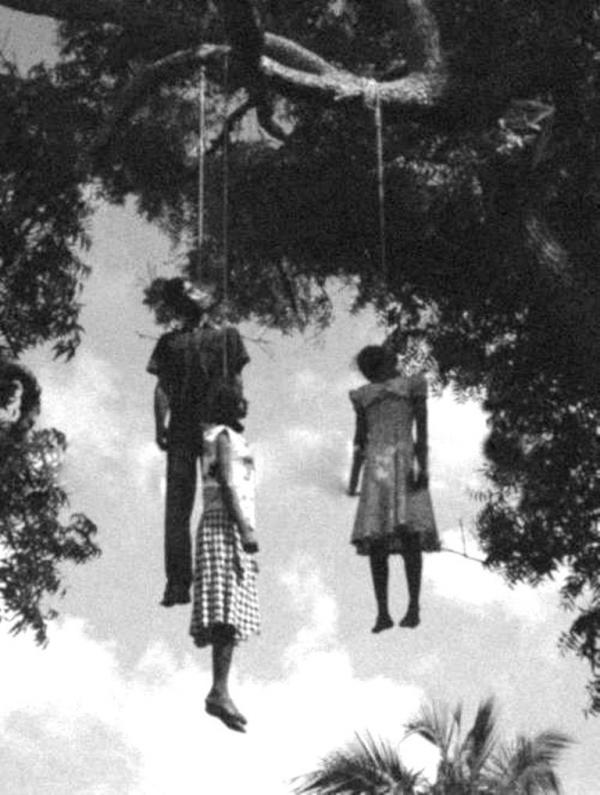
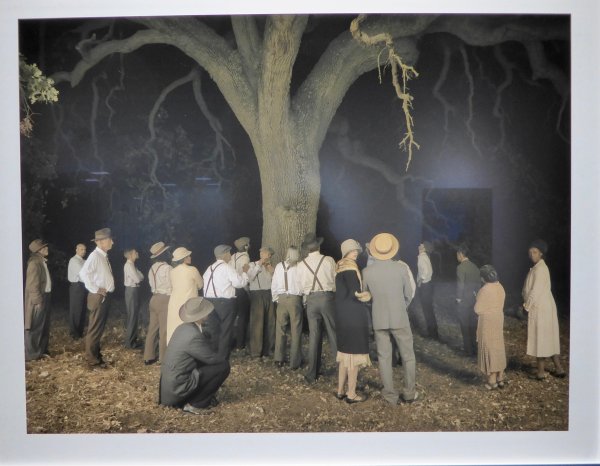
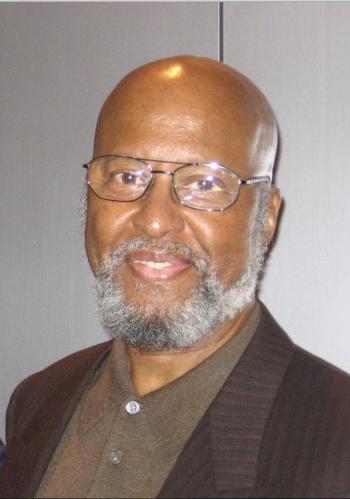
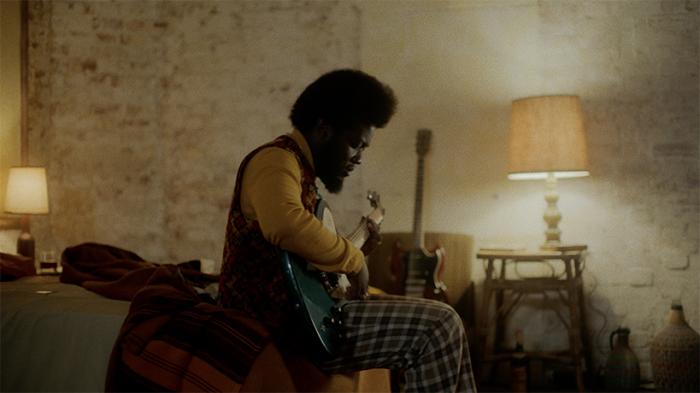
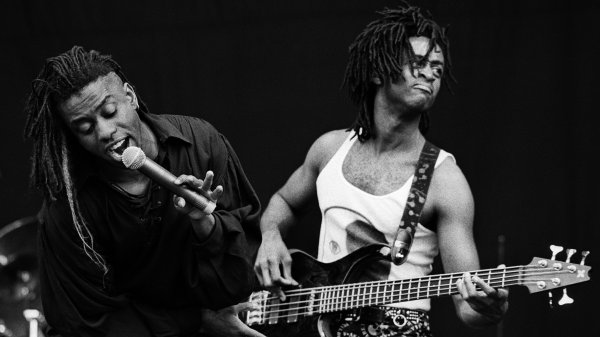

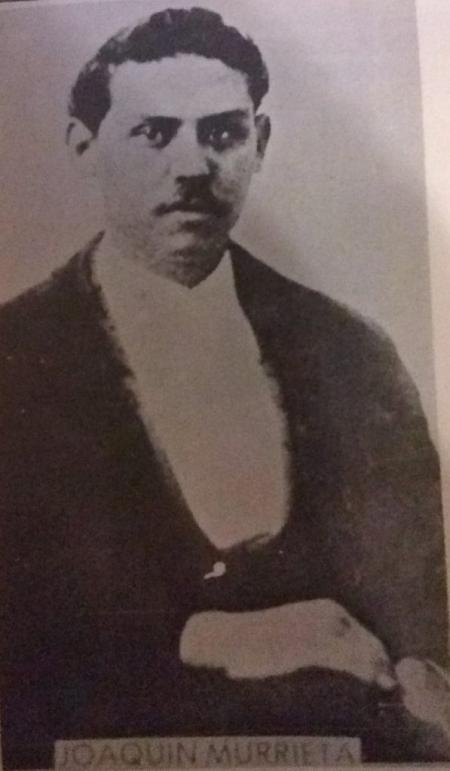
Legacy of the Blues, Vol. 3
Un blues che parla di guerra del Vietnam, inciso durante la guerra, prevede che questa sia senza fine viste le numerose nazioni che appoggiano il Vietnam. Poi paragona i problemi dei Vietnamiti con quelli degli afroamericani (dice "i miei problemi", il padre era del Congo, la madre per metà Cherokee e per metà afroamericana): Champion Jack Dupree negli anni '60 abbandona gli Stati Uniti per trasferirsi in Europa: gira Svizzera, Danimarca (dove vive a Christiania a Copenhagen), Inghilterra, Svezia e infine in Germania. [DQ82]
Champion Jack Dupree - born William Thomas Dupree (c.1910-1992) in New Orleans, he played blues piano in the boogie-woogie style, mainly based in Chicago, Illinois. He lived in London and worked in Europe through most of the 1960s. He sung about drugs, drink, and jail, as well as writing many political songs about US presidents (such... (Continues)